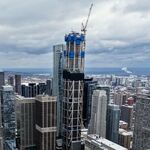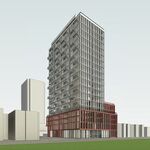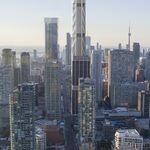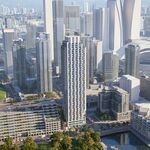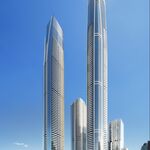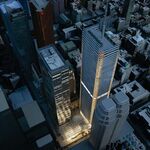Canada, especially Ontario, should be a leader, not a follower, in using hydrogen fuel cells to operate trains. That was a key message during the recent Metrolinx symposium, "Hydrail in Ontario: Examining opportunities for wireless electrification". Daryl Wilson, chief executive officer of Mississauga-based Hydrogenics delivered that message to attendees. His company is recognized as one of the leaders in developing the cells and is working with private and public organizations in Europe, Asia and North America to use them in a variety of use.
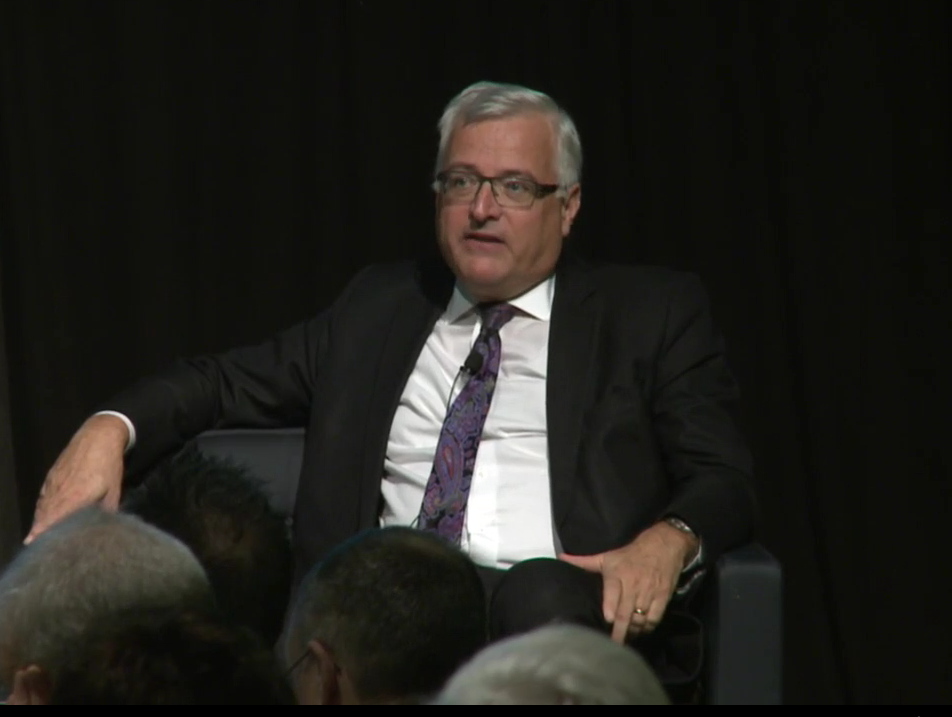 Hydrogenics CEO Daryl Wilson at the Hydrail symposium, image, Metrolinx
Hydrogenics CEO Daryl Wilson at the Hydrail symposium, image, Metrolinx
Wilson told the audience—mostly experts in the field and interested amateurs—that Hydrogenics and its predecessor companies had been working in the field of producing hydrogen through electrolysis—using a chemical reaction to produce the gas—in the Toronto area for many years. Now it's recognized around the world. "If Denmark led the way to using wind power as a clean, alternative energy source and the Chinese pioneered solar, Canada has taken the lead in hydrogen," he explained.
Wilson's company is very well-known in other places around the world, he said. "For example, in Germany, where with E.ON, the largest utility in the world, we put together the world's first multi-megawatt energy-storage power-to-gas plant. And, in China, today, where, just in the last 18 months, we prepared 400 modules to power buses for the streets of Beijing, 200 of which will be running by the end of this year."
"But we're most excited about working with Alstom to put [hydrogen fuel-cell-powered] trains on the tracks. They're running today in Germany and soon will be carrying passengers. But what we're talking about today is about bringing that technology home."
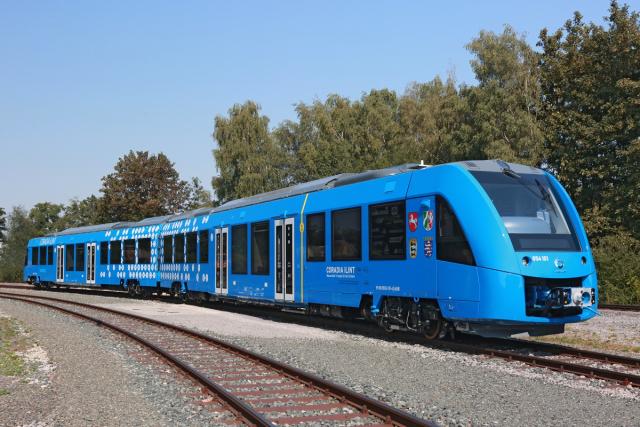 Coradia iLint regional train, Salzgitter (Germany), copyright Alstom / Michael Wittwer
Coradia iLint regional train, Salzgitter (Germany), copyright Alstom / Michael Wittwer
During the last two years, Hydrogenics and other companies are seeing a sudden upswing in demand for their products around the world. Dr. David Hart of E4 Tech, a sustainable energy consultancy based in Lausanne, Switzerland, told the crowd, "National and regional policy is a primary driver for [government and commercial interest in] hydrogen developments around the world."
He pointed to initiatives in Canada and the United States, the European Union, Korea, Japan and South Africa and other places that derive from governmental or industrial demands for clean, sustainable energy, emitting fewer greenhouse gases. "We've heard how hydrogen can be completely clean, if it's not made from fossil sources. But, then there's the question of air quality. And that's what's really driving the interest in hydrogen internationally—fuel-cell cars, trucks, vans, forklifts and, to some extent, rail," Hart said.
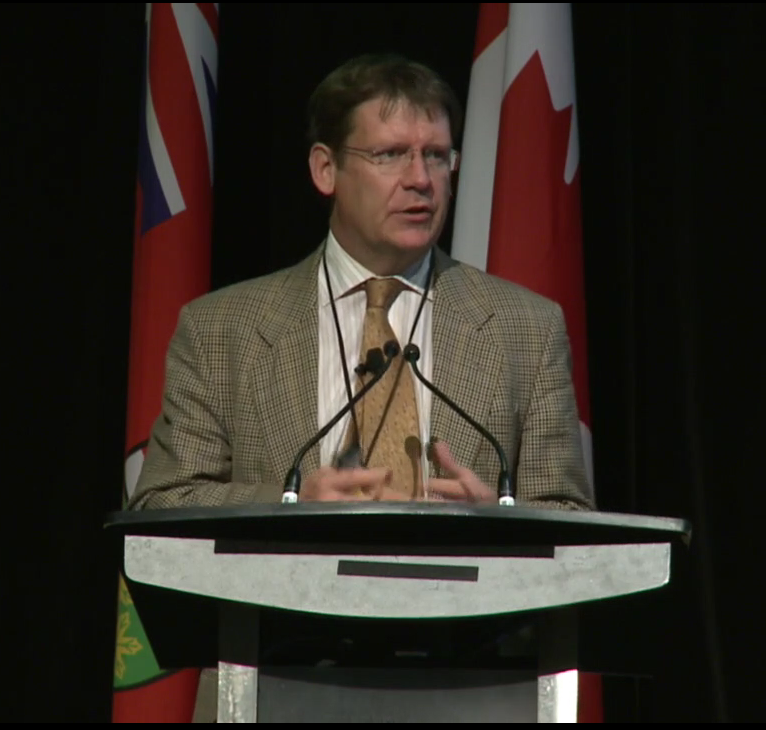 Hydrogen fuel-cell expert, Dr. David Hart, speaks at the symposium, image, Metrolinx
Hydrogen fuel-cell expert, Dr. David Hart, speaks at the symposium, image, Metrolinx
"Can we wean ourselves off imported oil is the important question. And as some industries become 'sunset industries', what is it that we can do to ensure employment and that big industrial companies find places to build machinery that add value?"
Hart said a major thrust toward clean energy and toward hydrogen fuel cells as part of that drive, comes from local authorities. He told the audience about the regional authority for Paris and area that is promoting incentives to encourage residents to use public transit, discounts on car-sharing subscriptions and free bike-sharing. The region is offering financial support to businesses to replace gasoline or diesel commercial vehicles with electric or natural gas. And it's intending to ban all diesel-powered vehicles in the area by 2025.
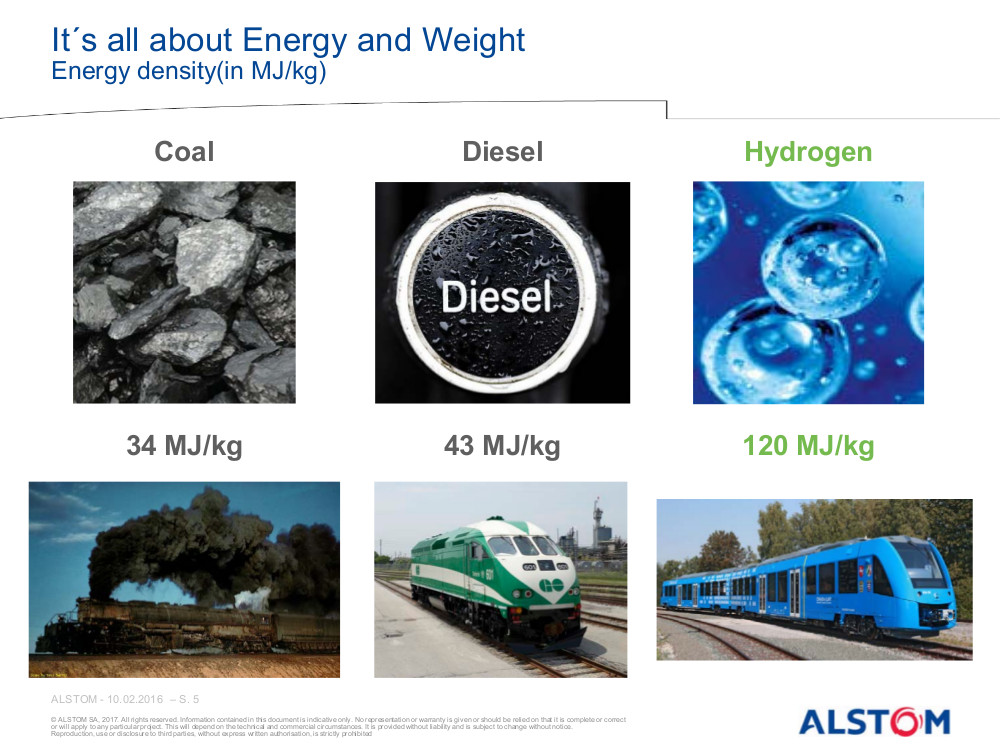 Hydrogen is light-weight, but high in energy, image, Alstom
Hydrogen is light-weight, but high in energy, image, Alstom
Similarly, London intends to operate all of its single-level buses with zero emissions by next year, powering them either with electric batteries or fuel cells. Double-deckers must meet the target by 2020.
Among other nations, Japan's commitment to hydrogen is significant, across government and industry. According to Hart, the Japanese government's long-term strategy is to create a 'hydrogen society to maintain the country's industrial competitiveness, international obligations to reduce greenhouse gases and to decrease its dependence on imported energy. The government generously supports agencies that use hydrogen fuel cells and intends to build 160 hydrogen refuelling stations by the end of 2020. Major Japanese companies are looking to integrate hydrogen into their products, with Toyota and Honda selling fuel-cell cars. Kawasaki Heavy Industry is building a 'demonstration' tanker with hydrogen turbines. Japan intends to profile its commitment to hydrogen during the 2020 Tokyo Olympics by planning for 6,000 fuel-cell cars and 100 buses during the event.
Representatives of several multinational corporations spoke during the event to tell the audience that hydrogen-fuel-cell technology is becoming an increasingly important part of their activities.
Wolfram Schwaub, the Vice President of regional platforms, products and innovation at French rail vehicle manufacturer Alstom, described his company's work in developing a light rail vehicles with hydrogen fuel-cells as the power source. In a pilot project, Alstom replaced the diesel technology in one of its standard Coradia cars and inserted fuel-cell technology, to create the Coradia iLint, which, as UrbanToronto has previously reported, has been a successful experiment. At least one German state railway has ordered working models of the Coradia iLint cars and intends to put them into regular passenger service next year.
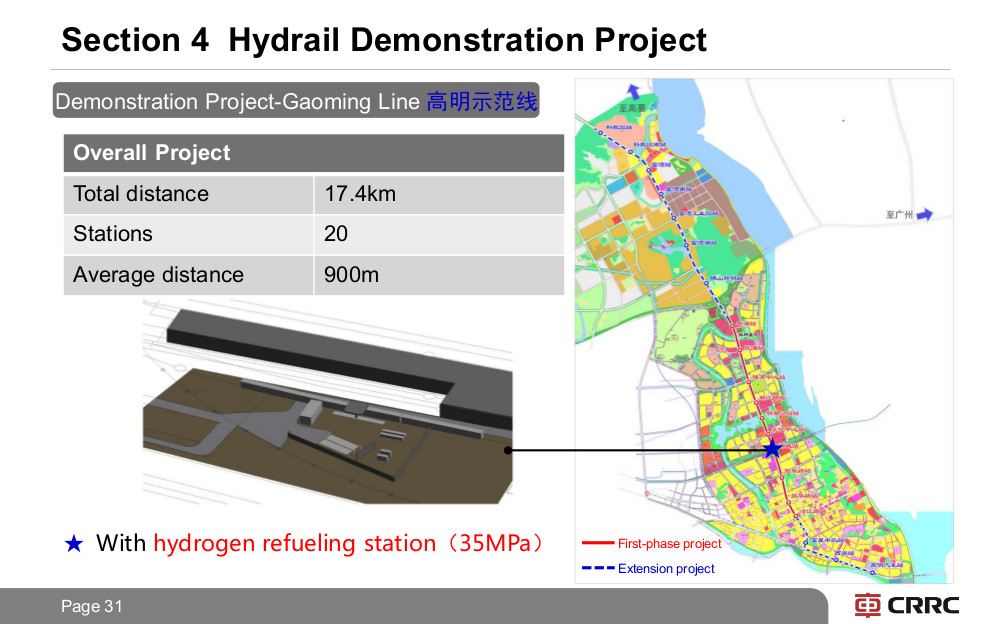 Chinese company, CRRC Qingdao Sifang, is planning to operate a hydrail light-rail train as a pilot project, image CRRC
Chinese company, CRRC Qingdao Sifang, is planning to operate a hydrail light-rail train as a pilot project, image CRRC
Following this, Tony (Tao) Liu, Marketing Director North America, Overseas Business, for Alstom's Chinese competitor, CRRC Qindao Sifang, announced that his company is also developing a hydrail project and intends to try out the trains on a working 17-kilometre light rail line with 20 stations in a Chinese town.
More locally, Don Romano, President and chief executive officer of Hyundai Auto Canada Corporation, told the symposium that "Hyundai is the only company that produces vehicles that are electric powered, hybrids, and hydrogen fuel-cell-powered."
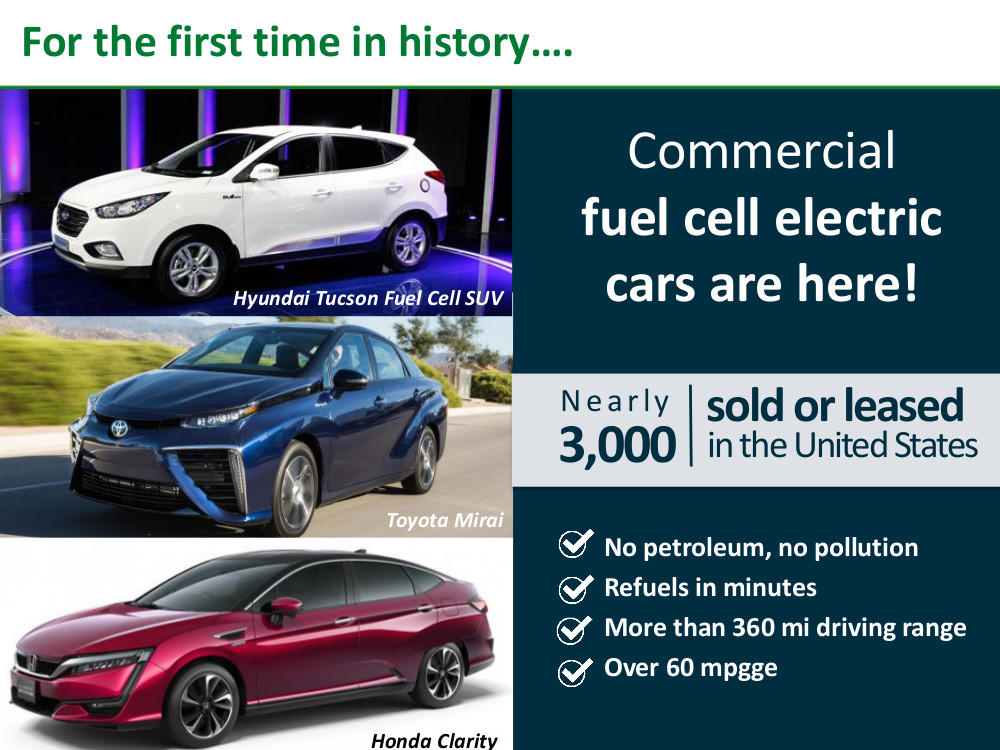 Several multinational automotive companies are investing in hydrogen fuel-cell vehicles, image, US Department of Energy
Several multinational automotive companies are investing in hydrogen fuel-cell vehicles, image, US Department of Energy
And, he admitted that his is not the only automotive company interested in hydrogen. "I'm not in the habit of plugging my competition, but it's not just Hyundai. Toyota, Honda, BMW, Mercedes-Benz—those little brands out there—all have invested heavily in hydrogen. In fact there's a consortium here in Canada that we belong to, trying to figure out two things: One, how do we get infrastructure established, and two, how do we educate people that hydrogen is safe?"
Circling back to Hydrogenics, CEO Wilson said, "When you have major automotive companies like Hyundai interested—I don't think Hyundai does this sort of thing, oh, just as a casual project. When major companies like Hyundai or Alstom are putting out products for consumer use, there is a great burden of care put on those companies to ensure the public safety."
As for trains, Wilson said, "Our job is to get rid of the great extension cord in the sky", meaning overhead catenary wiring that typically powers electric trains.
Almost speaking to Metrolinx and the Ontario government directly, he concluded: "It would be rather a shame, wouldn't it, to be the last jurisdiction in the world to build a multi-million dollar catenary system with all those unsightly wires? What a shame to be the last ones to do that! What an honour it would be to be the first in North America to build a wide-spread hydrogen-based rail system."
Join the conversation by posting your comments in the form at the bottom of this page, or by contributing to the GO electrification discussion thread on UrbanToronto's Forum.

 1.8K
1.8K 














